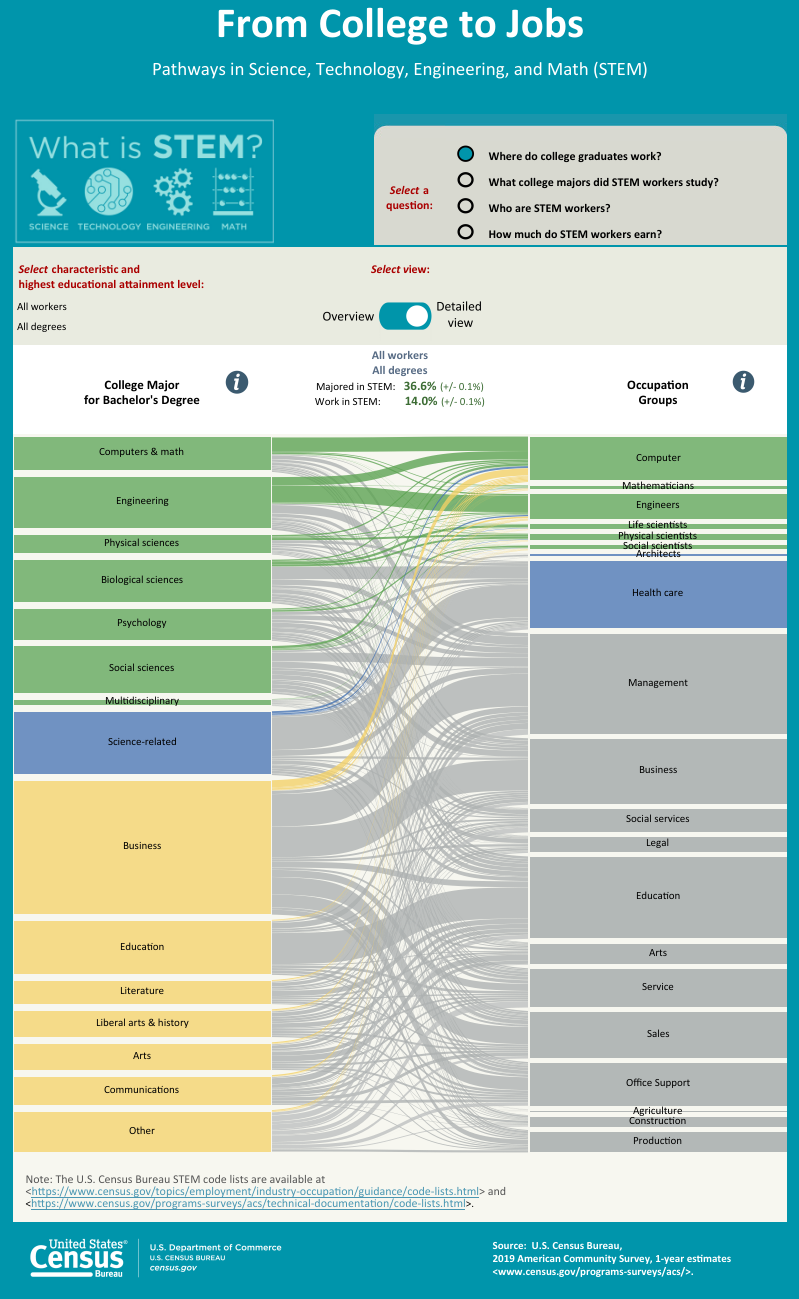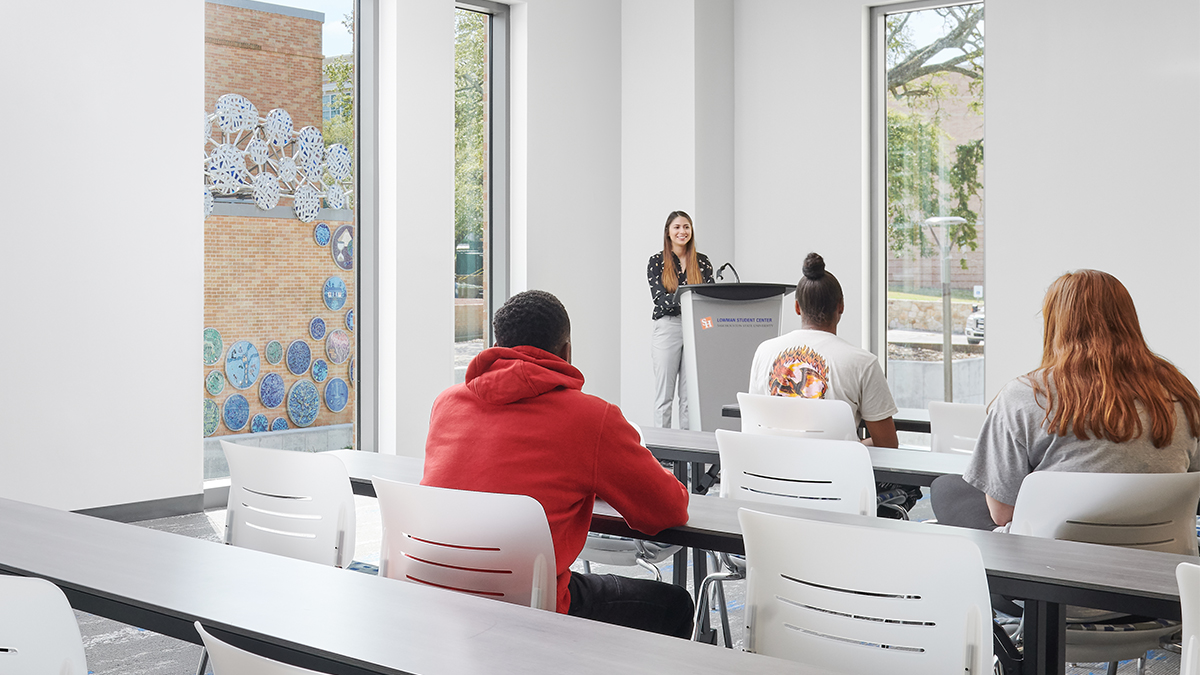Career Readiness: How Are College Students Preparing for Life After Graduation?

From discovering new interests to developing transferable skills, explore how educators can help prepare students for their careers beyond college.
For many soon-to-be college graduates, their senior year isn’t just about their on-campus commitments. On top of classes, capstone projects, extracurricular activities and campus jobs, they’re also thinking, “What’s next for me?”
Many students follow a very linear path throughout their education. In high school, they performed well academically, participated in extracurricular activities and took standardized exams to prepare for college. Once they entered college, they chose a major and remained active on campus. This path, although common, can mean students feel unprepared when graduation arrives and the next step in their path isn’t clearly mapped out.
No matter their major, most students are looking for a job when they graduate. While there may be a strong link between a student’s major and their first job, that’s not always the case.
What all students do have in common is the need to prepare for life after graduation. Below, we share a few ways educators can help students get ready to start their careers.
Discover New Career Experiences
Students in higher education are expected to choose a major based on their career interests. But for many first-year college students, their interests are still evolving. In reality, one-third of undergraduate students change their major at least once before earning their degree.
Exploring potential careers helps college students identify majors that align with their interests and skills, enabling them to make informed decisions about their future career. Here are three ways for students to make a personal discovery:
1. Self-reflection: Ask students to take time to assess their interests, values, strengths and passions to identify potential career paths. This can occur through thoughtful conversation, self-assessment tools and research.
2. Informational interviews: Encourage students to reach out to professionals in different fields to develop a better understanding of what a person does within a specific industry or role. LinkedIn and an institution’s alumni network are great places to start.
3. Internships and jobs: Building skills and actually experiencing a role is one of the greatest ways to better understand an industry. It also gives students direct professional and personal development, including a chance to start building a network of contacts.
Understand and Practice Transferable Skills
Students are no longer preparing for their career to be centered around one role. They’re expecting to work for multiple companies in a variety of jobs. The average person has more than 12 jobs throughout their lifetime. In today’s workforce, transferable skills are more important than ever.
While some roles require a technical skill set for practical application or substantial knowledge gained through experience and study, there are a variety of transferable skills built into all college majors and minors:

1. Communication: Effective communication is essential for any job and can include both verbal and written skills.
2. Teamwork: Most jobs don’t happen in a vacuum, so it’s critical to build social skills that help people work within a group efficiently and effectively and help them navigate conflict professionally.
3. Problem solving: Students need to practice their capacity to identify, analyze and solve challenging problems.
4. Critical thinking: It’s essential to be able to process a given situation and its complexities, ask the right questions and make thoughtful, evidence-based decisions.
5. Emotional intelligence: Emotional regulation and self-awareness significantly enhance a student’s capacity for empathy. It’s also increasingly valuable to be able to respond to others’ emotions in a work setting.
6. Creativity and adaptability: It’s helpful to be open to change and adapt to a situation while remaining calm and collected. Creativity and adaptability can also lead to an innovative new path or solution to a problem.
Access Personal and Professional Mentorship
Up to 85% of jobs are filled through networking. That can be discouraging for students who don’t have a built-in network of contacts or social capital in their field of interest. Fortunately, there are great resources that can help level the playing field for all students:
1. Alumni networks: By connecting students with numerous professional contacts and other graduates from their university, alumni associations offer abundant mentorship opportunities.
2. Faculty support: Students can seek guidance from campus faculty including professors and academic advisors.
3. Student organizations: Student organizations related to one's field of interest provide opportunities for seeking mentorship from upperclassmen members or alumni.
4. Networking events: Students can attend career fairs and other networking events organized by career services to connect with industry professionals.
This level of support is especially important for first-generation students, who now account for one-third of all college students. It can also be helpful for students of color, for whom mentors from a similar cultural background aren’t always easy to find on campus, especially at predominantly white institutions.
Guiding Students from the Classroom to the Real World
Exploring career interests is a phenomenal way for students to experience the world beyond their college campus, and educators and staff play a valuable role in helping students succeed after graduation. By taking advantage of the personal and professional mentorship opportunities available on campus, students can develop the skills and knowledge necessary to navigate their future careers with confidence.
In addition to what college students and educators can do themselves, employers are also partnering with educational institutions to prepare students for the workforce. To explore this topic further, refer to last week’s insights!
Subscribe
Stay up to date with the latest trends and more.







